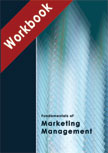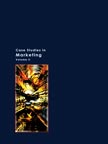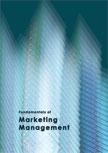Snapple's Marketing - An Unconventional Brand's Claim to Fame




|
|
ICMR HOME | Case Studies Collection
Case Details:
Case Code : MKTG148
Case Length : 23 Pages
Period : 1972-2006
Organization : Snapple Beverage Corporation, Quaker Oats, Triarc Group of
Companies, Cadbury Schweppes Plc.
Pub Date : 2006
Teaching Note : Available
Countries : USA
Industry : FMCG
To download Snapple's Marketing - An Unconventional Brand's Claim to Fame case study
(Case Code: MKTG148) click on the button below, and select the case from the list of available cases:

Price:
For delivery in electronic format: Rs. 400;
For delivery through courier (within India): Rs. 400 + Rs. 25 for Shipping & Handling Charges
» Marketing Case Studies
» Marketing Management Short Case Studies
» Case Studies Collection
» ICMR HOME
» Marketing Management Short Case Studies
» View Detailed Pricing Info
» How To Order This Case
» Business Case Studies
» Area Specific Case Studies
» Industry Wise Case Studies
» Company Wise Case Studies
Please note:
This case study was compiled from published sources, and is intended to be used as a basis for class discussion. It is not intended to illustrate either effective or ineffective handling of a management situation. Nor is it a primary information source.
|
|
<< Previous
Excerpts
Snapple Over the Years
Snapple had become popular over the years because of its
unconventional promotion methods. Unlike beverage behemoths Pepsi and Coca-Cola
who stuck to conventional marketing practices, Snapple adopted a more offbeat
approach to promotion and followed a grassroots marketing strategy...
Snapple's Beginning
|
From the beginning, Snapple was an unconventional brand. In the initial days of
the brand, the company did not have much money to spend on traditional marketing
campaigns. The owners therefore adopted an unconventional approach to promote
the beverage. Consequently, everything about the beverage, from the name to the
packaging and the advertisements was 'anti-establishment'. This
unconventionality set it apart from traditional beverage brands, and won it
loyal customers.
SBC's founders claimed that its juices contained only natural ingredients,
except for the diet variants which contained artificial sweeteners.
|
|
The “If it's not found in nature it's not found in Snapple,”
tagline was used across all product categories. (The tagline was later changed
to “Made from the best stuff on earth”)...
|
|
The Quaker Debacle
Quaker purchased Snapple in 1994 to capitalize on the synergies between Snapple
and Gatorade. Apparently, Quaker believed that it had the financial
resources to expand Snapple's market. The company had already had a
successful experience with Gatorade, which it had turned into a powerful
global brand after purchasing it from Stokely-Van Camp, a canned foods
company, in 1983. Reportedly, much of Quaker's success with Gatorade had
come from its use of a traditional 'textbook'approach to marketing the
product. Quaker used the same strategies to market Snapple...
|
Excerpts Contd... >>
|
|



